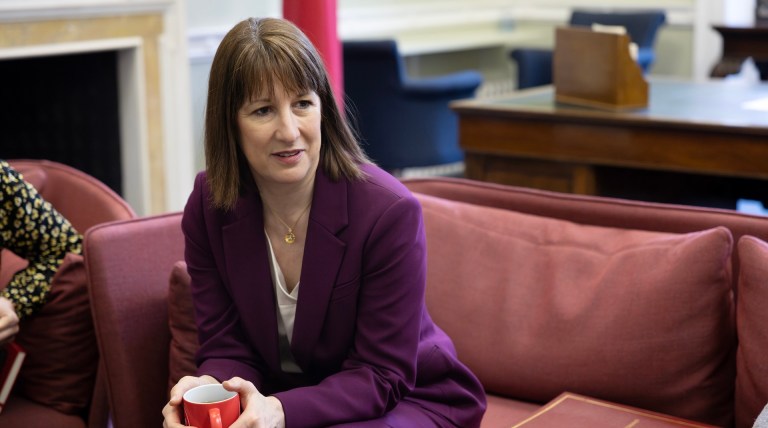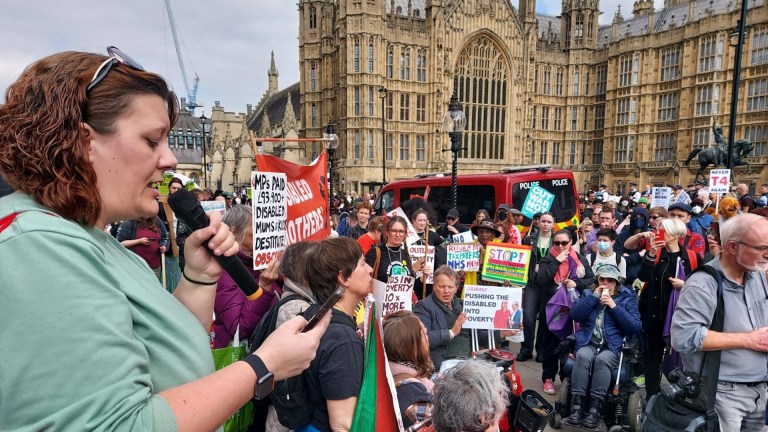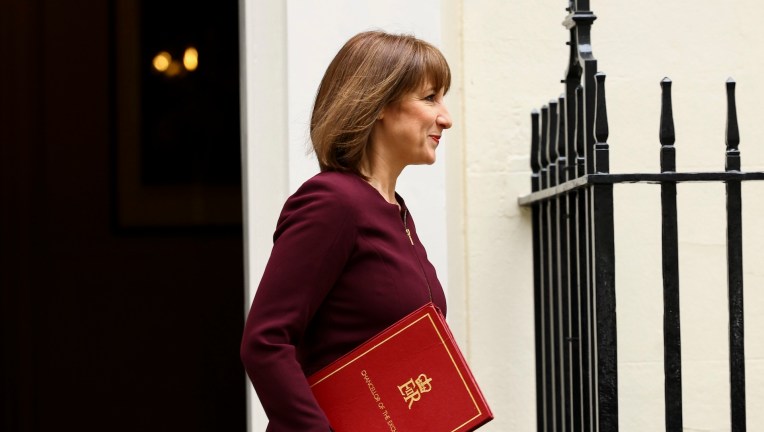A Government spokesperson said: “We are wholly committed to supporting disabled people through the pandemic, boosting welfare support by £9.3 billion to help those most in need, introducing the Covid Winter Support Package for those on low incomes and making £3.7 billion available to local authorities to help address pressures on local services including adult social care.”
Disabled people have “faced immense hardship” during the pandemic, the DBC said, often having to spend more on being able to buy food safely while paying more to avoid public transport getting to and from medical appointments.
This has been the reality for Lee, 62, in London, who has been supported by the Zacchaeus 2000 Trust. She has a severe skin condition and amyloidosis, an autoimmune disease that makes it difficult for her organs to work properly, meaning she is often bed-bound and experiences chronic pain.
I’ve had to cut back on food, support and sometimes go without the medication I need as I have to pay for it
“They haven’t really taken into account how disabled people live,” she told The Big Issue. “I can’t afford supermarket deliveries, which cost six or seven pounds each time. But I can’t afford to stock up and have a very small kitchen, so have to buy as I need, meaning shopping trips have to be frequent.
“But I don’t feel safe on public transport and often see people not wearing masks. It means my only options are to take a taxi to and from the supermarket, which I can’t afford, or have to rely on expensive, unhealthy, packaged food from corner shops.”
Before the pandemic, she relied on day-to-day support from people she knows who would come to her flat to provide care. But she can’t afford to pay their taxi fares and cannot ask them to take public transport as it would put them at risk.
Advertising helps fund Big Issue’s mission to end poverty
“If there is no money in the pot, I just don’t ask them to come,” she said. “I can spend money I don’t have or go without the support I really need.”
Earlier this year Lee, not her real name, wanted the flu jab but was told she was not entitled, despite her health conditions. It meant she had to save up to pay for one, by which point she was told her local centre had run out.
“On this little money there is no space for anything unexpected to come up. The problems existed with or without the pandemic, we need more to live off especially when life is even trickier,” she said.
“An extra £20 would make such a difference. It would mean I could do one big shop for the month, saving money in the long-run and limiting how often I could be exposed to the virus.
“For now, I’ve had to cut back on food, support and sometimes go without the medication I need as I have to pay for it. It would just take some of the pressure off, when things are already stressful.”
Earlier this year, the Social Security Advisory Committee said it was “increasingly untenable” for people on benefits other than Universal Credit to be excluded from the £20 increase.
Advertising helps fund Big Issue’s mission to end poverty
“Benefits claimants always feel we’re doing something wrong and are constantly at threat of being kicked out,” Lee said. “If I was able to take care of myself, I absolutely would. My friends tell me not to feel bad, that’s what they pay their taxes for but we’re just talked about like we’re scroungers.”
Campaigners have been calling on the government to make the increase to Universal Credit permanent instead of reducing payments in April.
“The £20 weekly uplift to Universal Credit has been a vital financial lifeline for families and an economic stimulus during these turbulent times,” Iain Porter at the Joseph Rowntree Foundation added. “As more livelihoods look uncertain, a strong social security system is essential to preventing rising unemployment leading to a surge in poverty.
“Later this month is the obvious moment for the Government to do the right thing by making the £20 a week increase to Universal Credit permanent and extending it to those excluded on legacy benefits. It’s incumbent on all of us to not lose our focus now if we are to protect living standards.”
Big Issue vendors need your help now more than ever. More than 1,000 vendors are out of work because of the second lockdown in England. They can’t sell the magazine and they can’t rely on the income they need.
Advertising helps fund Big Issue’s mission to end poverty
The Big Issue is helping our vendors with supermarket vouchers and gift payments but we need your help to do that.
Please buy this week’s magazine from the online shop or take out a subscription to make sure we can continue to support our vendors over this difficult period. You can even link your subscription to your local vendor with our new online map.










